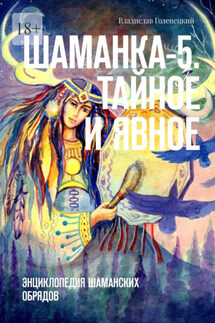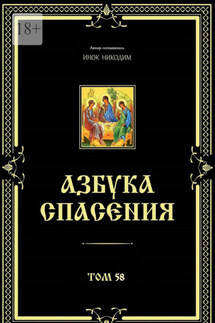Нигерия: народы и проблемы - страница 17
Rattle, rattle, come the drums, mingled with the long-drawn-out notes of the tin or silver trumpets. Suddenly a loud shout arises, a shout of merriment, as a monstrous figure, clad in skins of beasts, and, apparently, hung round with bladders, in his hand a long stick, dashes out of the advancing throng, clearing the intervening space between it and the Emir’s residence in a succession of frantic bounds. This is the Court fool, and his appearance is quite in setting with the piece. For this whole scene is a scene out of the Arabian Nights, and, really, one would hardly be astonished at the appearance of Jins, or even of Eblis himself. At last, here is the Emir and his immediate bodyguard, and the drummers and the trumpeters. The air resounds with prolonged “Ah! Ah! Ahs.” There is a vast tossing of arms, and prancing of horses, and glittering of spears, a climax of sound and colour—and dust.
The Emir Aliu is a fine looking man, with a good straight nose, intelligent, rather cruel-looking eyes. His mouth we cannot see, for the folds of the turban are drawn across the lower part of his face. A dark, indigo-dyed purple turban and under-cloak; over it a snow-white robe of silk with a tasselled cape which half hides the turban—these are the principal coverings to voluminous robes of many tints. His feet are encased in beautifully embroidered boots, and his saddle is richly ornamented. On the forefinger of his left hand is a heavy silver ring. Halting, he turns and faces the multitude. His attendants, one on either side, wave the dust away from his face with ostrich feather fans. Others, dressed in red and green, and carrying long staves, range themselves in front of him and shout his praises in stentorian tones. Four figures on foot advance, three of them are clad in skins and carry drums. The fourth is a crouching creature with a curious wizened face bearing a drawn sword in his hand. A sword dance ensues, the four going round and round in a circle. The gentleman with a sword contorts himself, prods viciously at imaginary foes, and every now and then makes a playful attempt to smite off one of the drummers’ legs. This performance being terminated—accompanied the while by incessant shouting on the part of every one in general—the actors retire, and the Emir holds up his thin aristocratic hand.
Instantly a silence falls. The change is singularly impressive. The Emir begins to speak in a low voice to a herald mounted on a raised platform at his side. The herald, the perspiration pouring down his face, shouts out each sentence as it falls from the Emir’s lips. As the speech proceeds the Emir becomes more animated. He waves his arm with a gesture full of dignity and command. And now the silence is occasionally broken with sounds of approval. Finally he stops, and it is the turn of the Resident who smilingly delivers himself of a much shorter oration which, as in the previous case, is shouted to the assemblage by the herald. I was able to obtain, through the courtesy of the Resident, from the Emir’s Waziri a rendering of the speech of which the following is a translation—
“The Emir greets you all with thanks to God. He thanks God’s messenger (Mohammed). He gives thanks for the blessings of his parents and his ancestors. He gives thanks to the Europeans who are the gates of his town. He thanks all White men. Next—you must attend to the orders which the Emir gives you every year. I say unto you leave off double dealing. Remove your hand from the people. Let them follow their own courses. Separate yourselves from injustice. Why do I say ‘Give up injustice’? You know how we were in former days and you see how we are now. Are we not better off than formerly? Next—I thank my headmen who assist me in my work. I thank my servants who are fellow workers. I thank my young chiefs who are fellow workers. I thank the men of my town who are fellow workers. I thank my followers in the town. I thank the village heads. I thank all the people of the land of Zaria who are helping me in my work. Next—I wish you to pay attention to the commands of the English. And I say unto you that all who see them should pay them respect. He who is careless of the orders of the White man does not show them respect. Though nothing happens to him he cries on his own account (i.e. his stupidity is his punishment), for it is his ignorance that moves him. Next—every one who farms let him pay his tax. Every one who says this man is my slave, or this woman is my slave, or these people are my slaves, and uses force against them, let judgment fall upon him. What I say is this—may God reward us! May God give us peace in our land! May God give us the abundance of the earth! Amen. Those who feel joyful can say—‘This is our desire! this is our desire!’”






